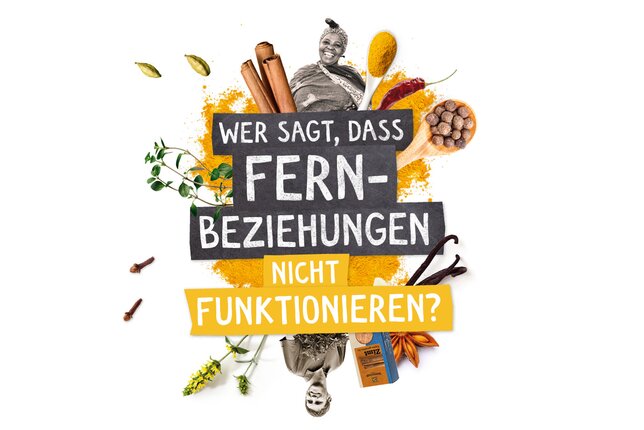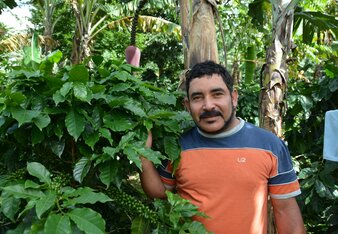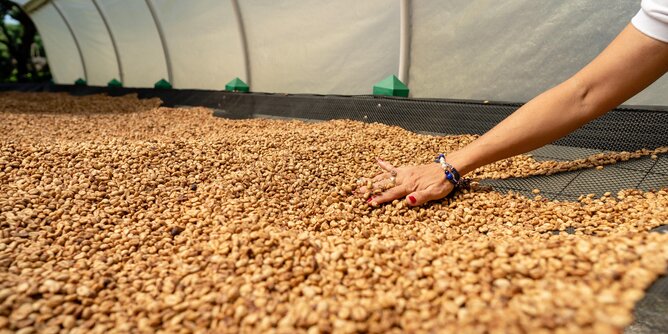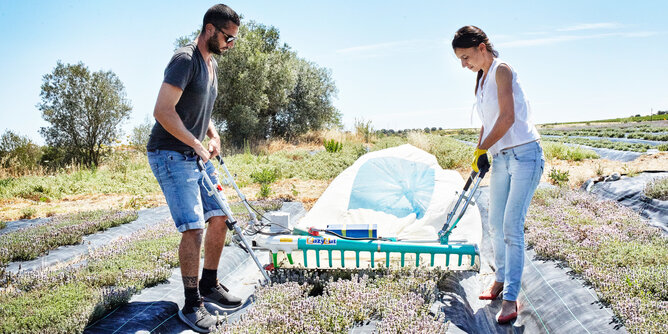We obtain around 200 organic herbs, spices, and coffee from around the world. About 60 percent is through direct trade from the farm and through local partners. We work with around 1,000 organic farmers worldwide. We guarantee fair prices and enable our partners to trade for the long term.
Not all herbs and spices are suited to our climate
Exotic plants such as cloves and pepper only thrive in southern regions. Herbs such as lemon thyme and Greek mountain tea only develop their unique aroma in a Mediterranean climate.
The demand for herbs and spices is growing
We need more raw materials than we can get in Austria. That's why we also source from other regions with abundant supply; for example, we get paprika from Spain. Obtaining products from different areas also guarantees supply in case of bad harvests.
Even in the best (long-distance) relationships, you sometimes have to overcome hurdles together. Climate change, pesticides, price increases, and labour shortages are among the most significant challenges.
The climate is changing
Unfortunately, extreme weather events such as drought, storms, frost, hail, and heavy rain events are no longer uncommon and, in the worst case, lead to crop failures for our organic farmers.
The question of price
What grows on your doorstep is cheaper? Only sometimes. Blossoms, for example, need a lot of manual work from sowing to harvest. This benefits countries like Romania, where there are many helping hands, lower costs, and better-growing conditions.
Pesticides have gone astray
Of course, chemical-synthetic pesticides are not allowed in organic farming. However, they can reach organic fields via the air and precipitation, and the so-called spray drift threatens the existence of many organic farmers.
We have to take action
Together we can tackle global challenges! Through direct trade, we contribute to promoting regional farming around the world.
Kooperation als Lösungsweg
Die Arbeit in der biologischen Landwirtschaft bringt besondere Herausforderungen mit sich. Das gilt für nah und fern. Deshalb haben unsere Wertehüter:innen einen eigenen Verhaltenskodex (Code of Conduct) entwickelt, der den Rahmen für unsere (Fern-)Beziehungen schafft. Falls es trotzdem mal schwierig wird, gilt: Auch wenn wir auf Distanz sind, sind wir nicht distanziert! Weil genau dann, wenn es Herausforderungen zu meistern gilt, oder etwas nicht unseren Werten entspricht, braucht es umso mehr eine offene Kommunikation und ein gemeinsames Arbeiten an Lösungen. Nur so gelingt es uns, soziale und ökologische Standards langfristig sicherzustellen.
From Tanzania to Greece to Austria - despite the distance, we maintain fair and direct partnerships on an equal footing. This is how we ensure long-distance relationships:
Communication on an equal footing
We rely on transparent and personal communication - whether in German, English, or sometimes with hands and feet.
Online communication is not enough
Even the best long-distance relationship needs the occasional face-to-face meeting. We regularly visit our partners to better understand each other.
Fair pay - good friendships
We pay stable prices, regardless of the world market price. If a harvest is particularly successful, we also buy larger quantities.
In good and in bad times
Together with our farmers in Austria, we have founded an organisation that supports them in protecting their farms against damage caused by pesticide drift. Wherever possible, we assist international projects with the set up of infrastructure.
Shared values
We have written down common values in our Code of Conduct, which is based on international guidelines and ensures social standards in our supply chain.





